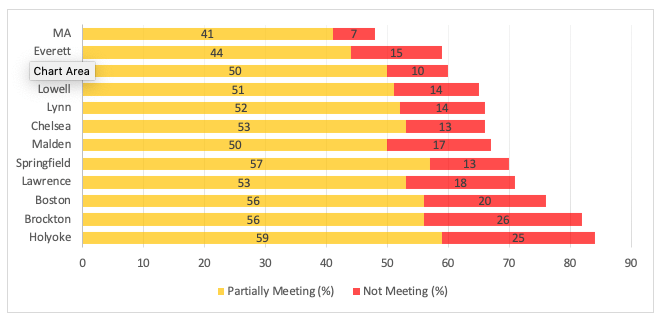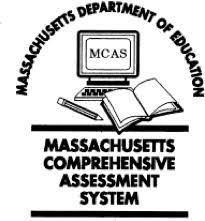Children’s third grade reading proficiency is a key predictor of their future academic success. In 2012, The Annie E. Casesy Foundation reported that 16% of children who are not reading proficiently by the end of their third grade do not graduate high school on time. This rate is four times higher than that of their proficient peers and is about eight times higher when children are from low-income or low-income families of color.
The Massachusetts Comprehensive Assessment System, or commonly referred to as the MCAS, is a statewide standardized test that begins in third-grade in subjects including Math and Reading Comprehension to examine individual student, school, and district performance. However, the recent 2018 report on MCAS reading scores of children in Boston area are showing unfavorable results. The report showed that about two-thirds of children from families of low-income or color are not reaching the proficient level of reading by the end of third grade – a rate that is two times higher than that of their non-economically disadvantaged and white peers.
 In addition, the proportion of students who are not meeting the proficient reading level in areas served by Raising A Reader MA is significantly higher than the level statewide (shown in chart below). In Holyoke, 84% of third graders are partially or not meeting expectations. For Brockton, that percent is 81%.
In addition, the proportion of students who are not meeting the proficient reading level in areas served by Raising A Reader MA is significantly higher than the level statewide (shown in chart below). In Holyoke, 84% of third graders are partially or not meeting expectations. For Brockton, that percent is 81%.
Despite the worrisome number of children lacking reading proficiency in our own neighborhoods, this number can be reduced by targeting vocabulary through the dialogic reading method. Dialogic reading is an interactive reading method that increases children’s exposure to new words and learning of new words through discussions with their readers. This simple yet often overlooked reading tactic can increase children’s vocabulary and is the core method at RAR-MA. As vocabulary prior to school entry is a key predictor of third grade reading proficiency shown by Risley and Hart, reading intervention such of RAR-MA is critical to allow all children to have an equal opportunity in future academic success.
Written by: Hojin Han, Master’s Candidate at Boston College Lynch School of Education

